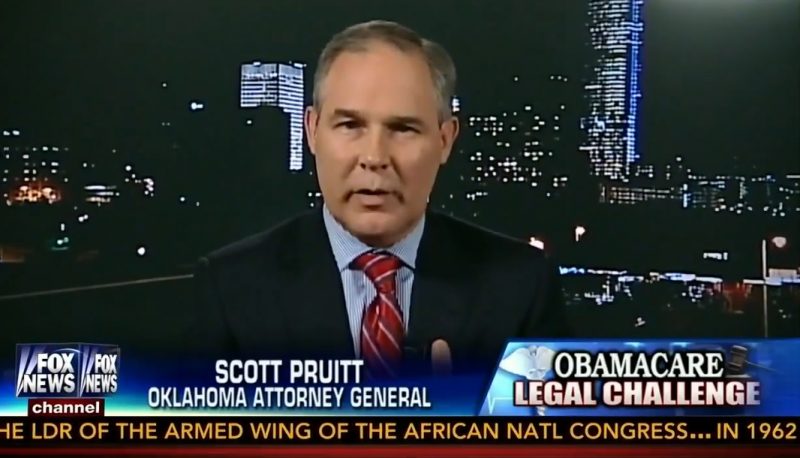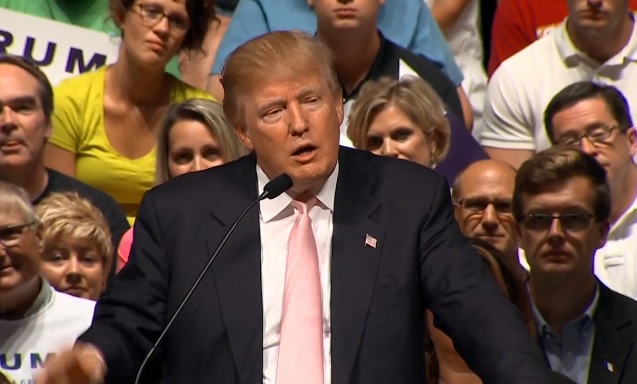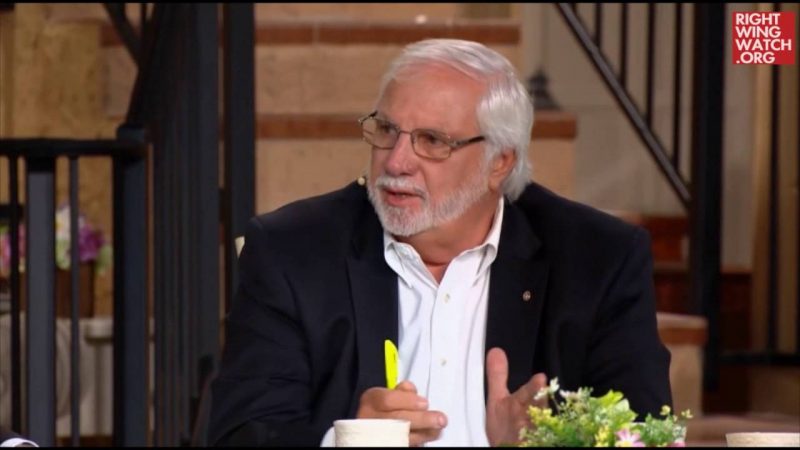Donald Trump’s transition team announced today that Oklahoma Attorney General Scott Pruitt will be Trump’s choice to lead the Environmental Protection Agency.
Pruitt has stood out even in Republican circles for his close connections to the fossil fuel industry and history of challenging EPA regulations on polluters.
Here are just five ways Pruitt would likely fulfill the energy industry’s dream of turning the agency’s stated purpose of protecting the environment upside down:
EPA Opponent
Pruitt has won plaudits from energy industry leaders for picking fights with the EPA.
As Keith Gaby of the Environmental Defense Fund wrote, “Pruitt has played a leading role in lawsuits challenging the Clean Power Plan” and “has sued the EPA to stop vital protections for public health – including standards for reducing soot and smog pollution that crosses interstate lines; protections against emissions of mercury, arsenic, acid gases and other toxic pollutants from power plants; and standards to improve air quality in national parks and wilderness areas.”
In one attempt to undermine the EPA, Pruitt successfully urged the state legislature to pass a bill that would require any state plan to comply with EPA rules on reducing carbon emissions to receive legal approval from his office, “with the assumption that he would rule it unconstitutional.” The bill was ultimately vetoed.
Energy Lobby Shill
In 2011, Pruitt sent a letter to the EPA criticizing its estimates on air pollution caused by natural gas drilling, a letter that The New York Times revealed was actually “written by lawyers for Devon Energy, one of Oklahoma’s biggest oil and gas companies, and was delivered to him by Devon’s chief of lobbying.”
“The attorney general’s staff had taken Devon’s draft, copied it onto state government stationery with only a few word changes, and sent it to Washington with the attorney general’s signature,” the newspaper reported, noting that Pruitt built close relationships with titans of the energy industry, who in return have supported his political ambitions.
Pruitt is especially close, the Times noted, with billionaire Harold Hamm, chief executive of the drilling company Continental Resource and a rumored Trump nominee to be energy secretary, aligning with Hamm’s interests in court while Hamm served as Pruitt’s campaign chairman.
Beloved By Fossil Fuel Donors
After Pruitt became president of the Republican Attorneys General Association, the GOP group received a windfall in donations from “energy companies and other corporate interests,” to the tune of $16 million. Pruitt also established a Rule of Law Defense Fund at the association, which the Times called “yet another legal entity that allows companies benefiting from the actions of Mr. Pruitt and other Republican attorneys general to make anonymous donations, in unlimited amounts.”
According to the National Institute on Money in State Politics, Pruitt received over $250,000 over eight years from the oil and gas industry.
Climate Change Skeptic
Misrepresenting the scientific consensus regarding human influence on the climate, Pruitt wrote in the right-wing National Review that the “debate” on climate change “is far from settled” as scientists “continue to disagree about the degree and extent of global warming and its connection to the actions of mankind.”
Support For Other Right-Wing Causes
Besides shilling for the energy industry, Pruitt has bragged that he “has led Oklahoma’s legal challenges to ObamaCare, the President’s unilateral (and unconstitutional) executive actions on illegal immigration, the EPA’s intrusion into property rights, Dodd-Frank and President Obama’s excessive use of ‘recess appointments’ to bypass Congress.”
While portraying himself as a states’ rights proponent, he sued Colorado after the state legalized marijuana.
Last year, a BuzzFeed News report found that Pruitt’s office “misrepresented the facts behind a key argument about the availability of certain execution drugs in its filings at the U.S. Supreme Court”:
In Oklahoma’s brief, they state that the source of pentobarbital stopped supplying the drug to the state because the source faced “intense pressure” to stop.
As proof of their claim, Oklahoma’s lawyers presented a heavily redacted letter they claim was sent to “ODOC” — the Oklahoma Department of Corrections.
But according to the pharmacy that wrote that letter, that never happened.
Pruitt’s office said that the misrepresentation was “inadvertent.”









